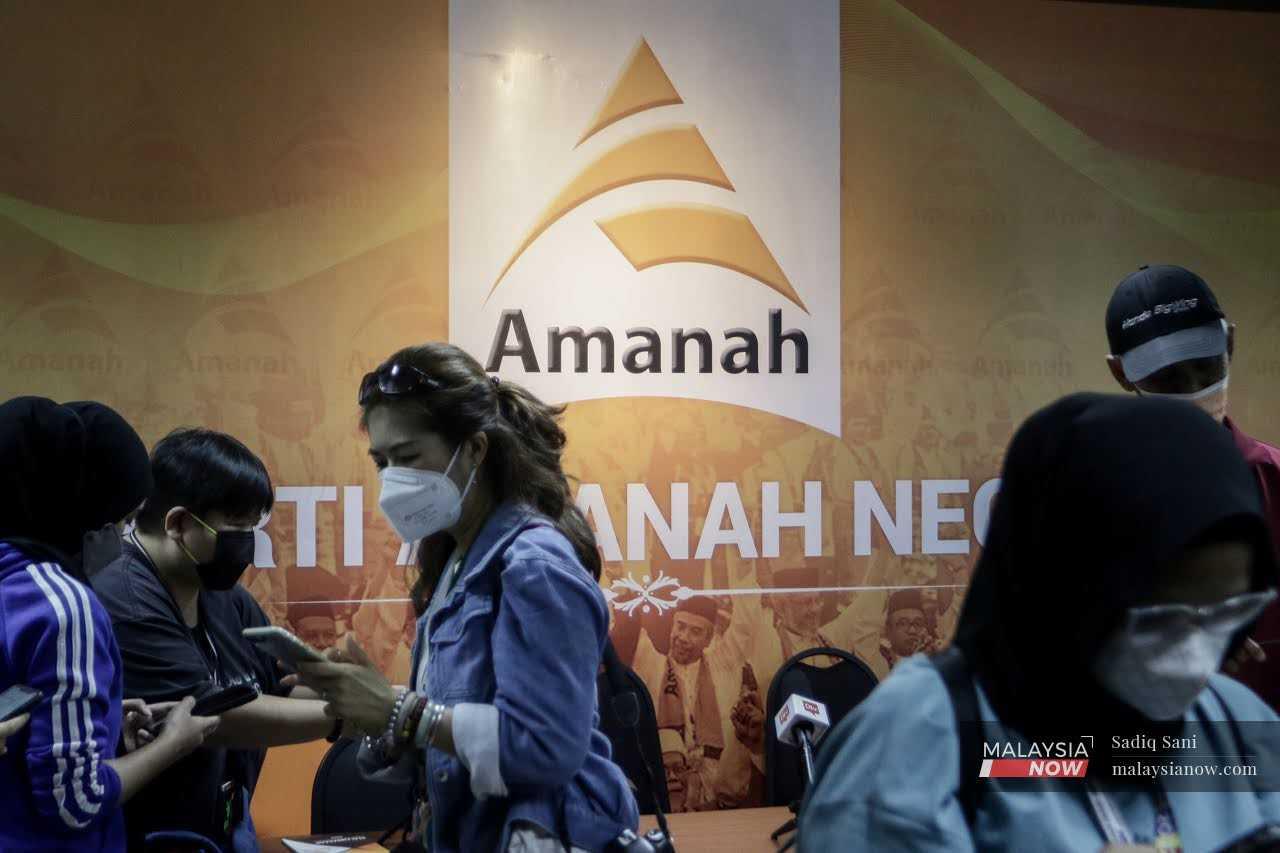With new 'Malay friend' Umno, Amanah increasingly sidelined for Selangor seats?
Questions are raised about Amanah's role as 'the Malay vote puller for Pakatan Harapan'.
Just In
Seat negotiations between Pakatan Harapan (PH) and its new-found ally Barisan Nasional (BN) have hit turbulence over increasing pressure on Amanah to give up its seats to Umno candidates at the coming state polls, MalaysiaNow understands through sources from PH component parties.
At least two persons close to the Amanah leadership said the move confirmed fears of attempts to replace the party – seen as the "Malay" and "Muslim" component of PH – with Umno, a sworn enemy turned ally whose support was crucial in the appointment of PH chairman Anwar Ibrahim as prime minister last year.
While similar pressure is being felt in at least four other states – Kedah, Negeri Sembilan, Kelantan and Penang – it is in Selangor, where PH was until recently in a comfortable position, that Amanah may feel most affected by the political realignment.
PH's comfort ended at the last polls when Malay-majority seats saw a shift towards Perikatan Nasional (PN), with even long-held Umno strongholds going to the recently established coalition.
Observers say Selangor, Malaysia's richest state with a proportionate racial representation of voters reflecting the national population, will be the most closely watched of the six states going to the polls.
This is mainly due to the fact that Umno will only have to focus on Bersatu and PAS candidates following its decision to join hands with PH.
This essentially means that PH will not contest in seats where Umno will contest, mainly Malay-majority seats.
"So the PH leadership must decide between these two: its loyal partner Amanah or its new friend Umno. With Amanah still failing to win support from opposition-minded Malays, all indications are that it will be sidelined to make way for Umno," said one former Selangor assemblyman.
At the last general election, with the exception of Hulu Kelang, Amanah largely won in constituencies where Chinese voters formed more than 20% – a number large enough to sway the results in PH's favour.
But even in Hulu Bernam, where Malays form just 70% of voters, Amanah lost to Umno.
BN still managed to bag four seats in Selangor in 2018, the year the coalition was ejected from federal power.
It is likely that BN's victories were due to the split in opposition votes between PH and PAS. PAS had then refused to join forces with PH, which included Bersatu at the time – a party that emerged as an alternative to Umno supporters who were unhappy with Najib Razak and the 1MDB scandal.
"Now with the coming together of Bersatu and PAS, both with a strong Malay support base, there could be a repeat of the clean sweep of seats from BN and PH, as was seen in the November polls," said a former Amanah candidate in Selangor.
Speaking to MalaysiaNow, he said almost all of these seats were being claimed by Umno during seat negotiations, leaving Amanah with seats where there are a comfortable margin of Chinese voters.
"This essentially means that Amanah is no longer regarded as the Malay vote puller for PH, which was one of the main reasons the party was formed, in order to stop the exodus of Malay support after PAS ceased to be part of PH."
Amanah was formed in 2015 by a faction led by Mohamad Sabu, not long after he was trashed by Tuan Ibrahim Tuan Man for the the deputy president's post in the PAS election that year.
Critics have traditionally considered Amanah as an extension of DAP, citing the close ties between Mohamad and other party leaders and Lim Kit Siang and his son Lim Guan Eng.
Many also note how DAP has allowed Amanah to contest in non-Malay "safe seats", including Mohamad himself who was given Kota Raja, a DAP stronghold with only about 43% Malay voters in the 2018 election.
"The fact is that even cosmetically, the Malayness of Amanah is now being questioned, and to replace it with Umno is only politically wise and natural if PH is to retain whatever semblance of Malay support it has," said a Selangor Umno politician based in Petaling Jaya.
Umno president Ahmad Zahid Hamidi himself made a vague allusion to this when asked about the progress of seat negotiations with PH.
"What we will prioritise is that the seat distribution is done not only with a sense of equality but also look at the winnability. We feel that it is not only about victory but about voter acceptance and the likeability of a candidate among the voters in the area concerned," he said on May 1.
Subscribe to our newsletter
To be updated with all the latest news and analyses daily.
